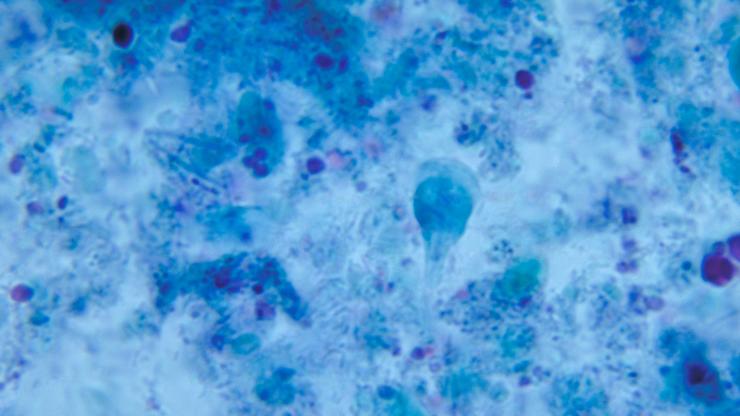Henneguya salminicola, a parasite recently discovered by researchers, is the first multicellular animal that can survive without oxygen and doesn’t even have DNA in its mitochondria.
Researchers have been pretty busy with all the new discoveries that’ve been popping up recently, whether it be or the more ominous COVID-19 Coronavirus. However, we now have a new animal to welcome to the kingdom that doesn’t even need oxygen to breathe. Oh, and you won’t believe what it leeches on for survival.

STEPHANE DE SAKUTIN/AFP Getty Images
Its scientific name is Henneguya salminicola, and this parasite is the first multicellular animal that doesn’t breathe nor has mitochondrial DNA according to a report from the Proceedings of the National Academy of Sciences. Following extensive research, Henneguya salminicola is believed to maintain by literally living off salmon in what appear as “white cysts that resemble tapioca.” While the thought is sure to bring a pretty gross image to mind, thankfully it’s neither harmful to the infected fish itself or humans that ingest it. The parasite has apparently developed over time to gain such abilities, and gets its “first of” title due to the existence of single-celled organisms that can survive without oxygen. Although there are a handful of multicellular animals that reportedly can live without oxygen, studies have yet to officially confirm that fact. Well, more like yet since studies are currently being conducted.
Does this make you pescatarians and seafood lovers out there get the heebie jeebies or just spark scientific inquiries? Let us know your thoughts down in the comments.



